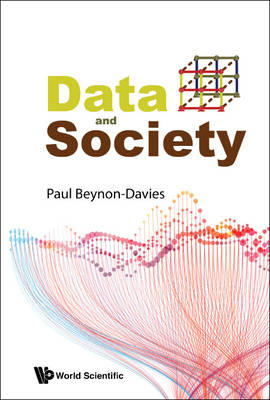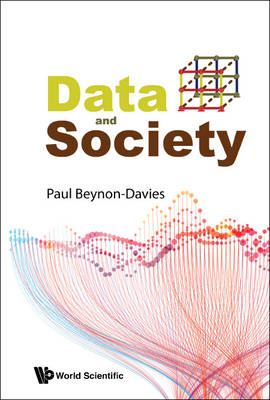
Je cadeautjes zeker op tijd in huis hebben voor de feestdagen? Kom langs in onze winkels en vind het perfecte geschenk!
- Afhalen na 1 uur in een winkel met voorraad
- Gratis thuislevering in België vanaf € 30
- Ruim aanbod met 7 miljoen producten
Je cadeautjes zeker op tijd in huis hebben voor de feestdagen? Kom langs in onze winkels en vind het perfecte geschenk!
- Afhalen na 1 uur in een winkel met voorraad
- Gratis thuislevering in België vanaf € 30
- Ruim aanbod met 7 miljoen producten
Zoeken
Omschrijving
Most literature thinks of the relationship between data and society as additive, meaning that data and society are seen as two separate sets of things but which overlap to form an intersection. The literature then goes off to unpack the intersection of the two circles and partners the term data in this manner with terms descriptive of the domain of society -- ownership, control, surveillance, and privacy, to name but a few.Within this book, we want to promote an alternative viewpoint of the relationship between data and society. Rather than explaining how data fits with or contributes to some burning societal issues, we want to explain how data is constitutive of many such issues. The term constitutive is used here in the sense of data having power to institute, establish, or enact society.Our viewpoint means that if you are to properly understand the constitutive nature of data, you must start from first principles and closely examine the nature of data itself. You must also focus on the mechanics of data -- how data is represented and articulated in records or more generally in data structures.Our aim in doing this is to examine the place of data structures across cultures and societies. In doing so, we hope to better understand why we, as humans, make records. In doing this, we can also better understand some of the unintended consequences of the use of records, which particularly plague us in the modern world.
Specificaties
Betrokkenen
- Auteur(s):
- Uitgeverij:
Inhoud
- Aantal bladzijden:
- 400
- Taal:
- Engels
Eigenschappen
- Productcode (EAN):
- 9789811237249
- Verschijningsdatum:
- 11/08/2021
- Uitvoering:
- Hardcover
- Formaat:
- Genaaid
- Afmetingen:
- 152 mm x 229 mm
- Gewicht:
- 703 g

Alleen bij Standaard Boekhandel
+ 360 punten op je klantenkaart van Standaard Boekhandel
Beoordelingen
We publiceren alleen reviews die voldoen aan de voorwaarden voor reviews. Bekijk onze voorwaarden voor reviews.









